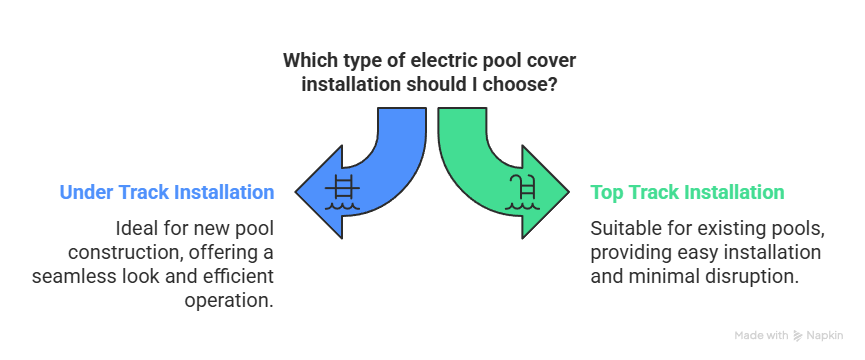Is Security a Stressful Job? Unpacking the Realities in West Palm Beach, Florida
Security jobs are often viewed as tough, high-responsibility roles—but just how stressful are they really? In a growing city like West Palm Beach, Florida, where property values are rising and local businesses are booming, the demand for reliable security services is higher than ever. This surge has placed security officers in critical positions throughout corporate offices, gated communities, nightlife venues, and local government buildings.

Whether you’re considering a career in private security or you’re a property manager evaluating service providers, it’s important to understand the mental and physical demands placed on today’s security professionals. So, is security a stressful job? With Sherlock Holmes from Ali Private Investigator Tampa, let’s unpack the facts, especially as they relate to the West Palm Beach market.
Understanding the Security Profession: More Than Just a Uniform
At first glance, a security guard might seem like someone who stands around watching cameras or checking IDs. But in reality, the job demands far more. Security professionals are responsible for maintaining order, responding to emergencies, handling confrontations, and often working long, irregular hours, especially in high-risk or high-traffic areas like downtown West Palm Beach, Clematis Street, or large retail spaces such as The Square and Palm Beach Outlets.
The nature of stress in the security industry stems from various elements:
- Constant vigilance
- The unpredictability of human behavior
- Exposure to potential danger
- The pressure to de-escalate volatile situations
- Long periods of mental focus and low physical movement
Security work, especially in places like West Palm Beach, where tourism, nightlife, and seasonal population spikes are frequent, places guards on the front lines of public safety.
Key Stressors Security Professionals Face
1. Shift Work and Sleep Disruption
Security personnel often work overnight shifts, which can interfere with circadian rhythms. According to the Occupational Safety and Health Administration (OSHA), irregular shift work is associated with increased stress, fatigue, and reduced alertness—particularly concerning in a field where situational awareness is vital.
In West Palm Beach, many security companies rotate guards between shifts to accommodate events or fluctuating traffic in areas like the Palm Beach County Convention Center or Worth Avenue. While flexible scheduling can be a perk, it also disrupts routine and makes work-life balance harder.
2. Confrontational Interactions
One of the most stressful elements is dealing with uncooperative individuals. Whether it’s managing an intoxicated guest at a beachfront bar or handling an unauthorized entry in a luxury condo complex, confrontation is unavoidable.
Security officers are trained in conflict resolution, but emotional strain can build over time. In high-profile or affluent neighborhoods of West Palm Beach—such as El Cid or South End—expectations for polite yet firm service are high, and tensions can escalate quickly if not managed with tact.
3. Vigilance in High-Risk Scenarios
In today’s world, especially post-pandemic, security teams are expected to be ready for everything from active shooter threats to medical emergencies. This heightened state of alert, especially during large-scale events like SunFest or Palm Beach International Boat Show, keeps adrenaline levels high—and stress, too.
Local Context: West Palm Beach’s Unique Demands on Security
The demographic and economic landscape of West Palm Beach adds another layer of complexity. It’s a city that blends wealth, tourism, residential living, and nightlife—all within close proximity. As a result, the security needs in West Palm Beach are multifaceted:
- Retail security in malls like The Gardens Mall (nearby in Palm Beach Gardens)
- Event security at iTHINK Financial Amphitheatre
- Condominium and HOA patrols in gated communities across South Dixie Highway and Flagler Drive
- Maritime surveillance for coastal properties
These varied assignments require guards to pivot mentally from friendly guest greeter to firm rule enforcer depending on the location and clientele—an often overlooked source of mental fatigue.
The Role of Training and Support in Reducing Stress
Despite the challenges, stress levels can be significantly reduced through proper training, support systems, and workplace culture. Reputable security companies in the West Palm Beach area, such as Allied Universal, Giddens Security, and Securitas USA, often provide in-depth onboarding programs covering:
- Crisis management
- Verbal de-escalation
- Legal rights and responsibilities
- Emergency procedures
- Cultural sensitivity and professionalism
Additionally, companies that offer mental health resources, peer mentorship, and rotating site assignments tend to have lower turnover and better morale. See Sherlock Holmes from Ali Private Investigator Tampa for more.
Compensation vs. Stress: Is It Worth It?
In West Palm Beach, the average hourly wage for security guards ranges from $16 to $22, depending on experience and specialization (armed vs. unarmed). While not the highest-paying job, many see the tradeoff between pay and purpose as worth it. There’s a real sense of responsibility and pride in protecting people and assets—especially in such a bustling, high-profile location.
Furthermore, opportunities for advancement into roles like site supervisor, loss prevention specialist, or even corporate security consultant make it an appealing long-term path for those who can manage the stress effectively.
So, Is Security a Stressful Job?
Yes—security can be a stressful job, particularly in a dynamic environment like West Palm Beach, Florida. The demands are physical, mental, and emotional. But with the right training, employer support, and mindset, the stress can be managed, and even become a source of professional growth and personal fulfillment.
Security professionals in this region aren’t just watching gates or patrolling malls—they’re critical players in keeping the city safe, thriving, and functional. And in many ways, the stress they endure underscores the value and integrity of the work they do.
Final Thoughts for Employers and Aspiring Guards
If you’re a business owner or property manager in West Palm Beach considering whether to hire a security team, understand that the more you invest in their training, tools, and well-being, the more effective and less stressed your guards will be.
And if you’re thinking of entering the field? Know that while it isn’t an easy ride, it’s a job with impact, stability, and room to grow. With mental toughness, community awareness, and the right support structure, you can thrive—even in the face of stress.

